
Background information
Is Pokémon Legends Z-A the best Pokémon game we’ve seen in ages?
by Domagoj Belancic
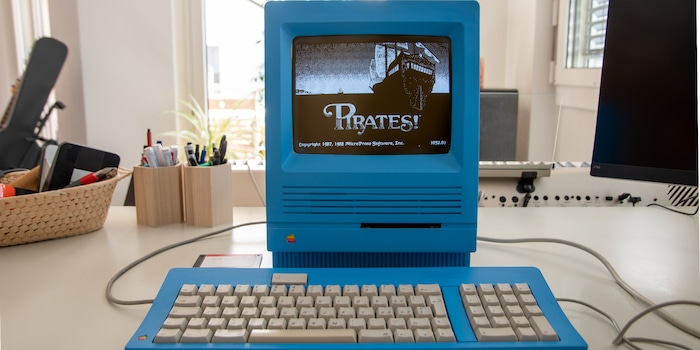
The concept behind «Pirates» is similar to the one behind «GTA». Instead of driving stolen cars, you sail around in stolen ships. The thing is, «Pirates» came out way back in 1987 – a fact that impresses me now more than ever.
My memory of 80s computer games consists of stacking blocks on top of each other, card games and being chased by evil creatures through a 2D labyrinth. Most of the games were simple and skills-based, only managing to stay exciting for so long because they were seriously tricky.
«Pirates», which came on the scene in 1987, was different – and ahead of its time. An open-world game with freedom to roam, the game doesn’t tell you how to achieve your goal. It doesn’t even say what your goal is. You’ve got to figure that out for yourself.
The full name of the game is «Sid Meier’s Pirates!» In other words, it was made by the same guy who created «Civilization» and «Railroad Tycoon». I first played «Pirates» in the early 90s on a Mac with a black and white screen, but it even runs on a Commodore 64 – the computer it was initially made for.
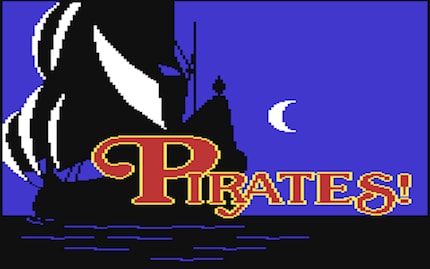
It’s the 16th or 17th century and you’re a pirate, sailing your way across the vast expanse of the Caribbean. How quickly you reach your destination depends on the strength and direction of the wind, as well as your ship. You can raid other ships, attack cities and pillage them, but you can also visit taverns to recruit people or hear news. At the merchant’s, you can have your ship repaired or sell the goods you’ve plundered.
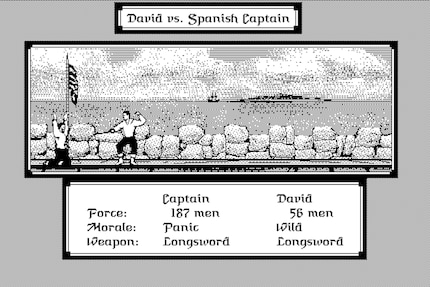
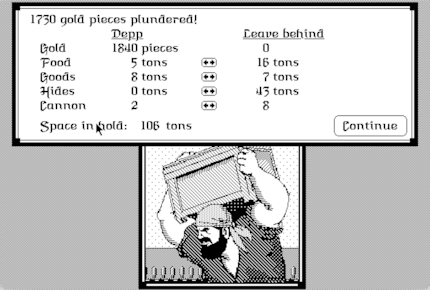
On a surface level, the game doesn’t give you any direction. Technically, you could just trade sugar. Over time, however, you realise that certain things lead you to great success, while others are either dull or disastrous. Part of the game’s appeal, particularly for beginners, is that you’re drifting haphazardly at sea, letting the pirate life teach you its ways. Several years go by in the game, and in real life, you play for many, many hours at least.
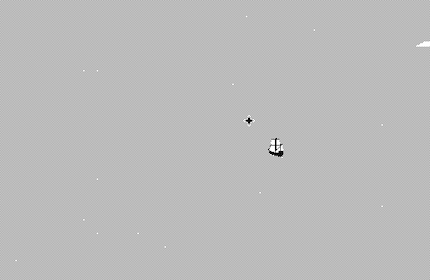
As was the case historically, there’s a blurred line between privateering and piracy. Privateers do what they do in service of the nation – they’ve got permission to plunder. Of course, this only applies to ships belonging to hostile nations. As a privateer sailing under the English flag, for example, you raid Spanish ships, and are rewarded by England for your efforts. In the numerous Spanish cities, however, English privateers are forced to sneak around, and aren’t allowed to trade goods.
This way, city governors will grant you accolades, land and even the opportunity to ask for their daughter’s hand in marriage. The status-conscious ladies, however, especially the beautiful ones, play hard to get for a long while.
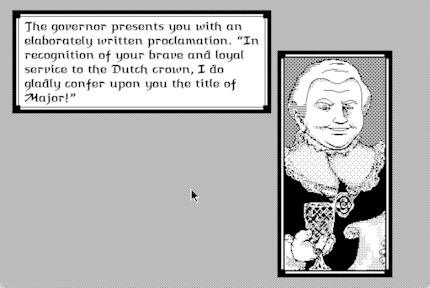
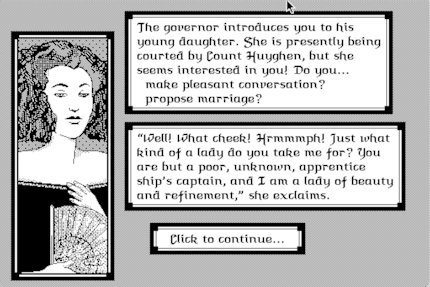
As a privateer, however, you often find yourself lacking suitable targets, while beautiful, allied ships are dangled enticingly in front of your nose. It makes you think: ach, I’ll raid that one anyway. I mean, I am a pirate – I can do what I want! Of course, this has its consequences. All things considered, though, it’s worth it. It’s exactly what gives the game its appeal. There’s no single strategy leading clearly to success.
Screw up your relationship with a given nation and you’ll no longer be granted easy access to its ports. Drift at sea too long without looting and your ship’s supplies will run low, fanning the flames of discontent among your crew. It’s the same story if you fill your coffers without sharing the spoils. If you keep on taking new crew on board, your current pirates’ share of the treasure goes down, which also makes them angry. On the other hand, you need sailors to keep large ships running and increase your might in combat.
Overestimate yourself in combat and you’ll lose the battle and be captured. You’ll be thrown in jail, losing not just several months, but your fleet too.
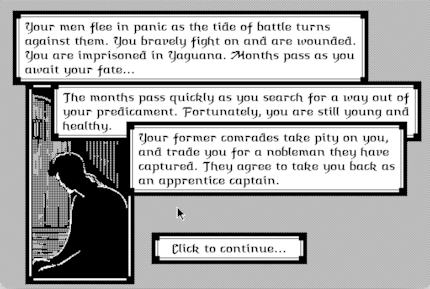
It’s these kinds of practical constraints that push you in a certain direction. If you don’t want to get into any sticky situations, you’ve got to act with foresight. You’re always making decisions, but your success also depends on fate and external circumstances. It might sound corny to say so, but it’s very similar to real life.
The game doesn’t show you a map. Sailing across the open sea, you’re completely disoriented. All you’re able to do is determine your coordinates based on the position of the sun. Funnily enough, this makes the game more realistic than with a minimap.
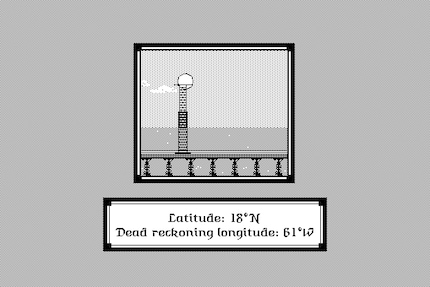
It must’ve been around 1992 that I got my hands on a printable Pirates map spanning several A4 pages. At that point, though, I’d already memorised the location of each island and city and whom they belonged to. But it wasn’t until I saw the map that I realised that the world of Pirates is a pretty good replica of the actual Caribbean; the geography of which I’d acquired a decent knowledge of.
Pirates’ openness and complexity are impressive for a game that only came out three years after Tetris. Sure, the graphics are rudimentary – and there’s no comparing them to even the first edition of Grand Theft Auto. But the principle of the game is similar. Instead of driving stolen cars, you sail around in stolen ships. Though part of a criminal milieu, you decide for yourself just how unscrupulous you want to be. You’ve got clients, and you’re trying to make a career. And it’s not all about accumulating titles and gold – you’re also searching for your missing sister, and looking for a wife.
The game always ends with your retirement from piracy – something you also get to decide for yourself. In this case too, it’s practical concerns that spur your decision. Eventually, too old and rusty for the pirate life, losing sword fights you’d have won effortlessly in the past, you realise it’s time to pack it all in. It’s the same reason I gave up my pirate career and became a railroad tycoon instead.
My interest in IT and writing landed me in tech journalism early on (2000). I want to know how we can use technology without being used. Outside of the office, I’m a keen musician who makes up for lacking talent with excessive enthusiasm.
Interesting facts about products, behind-the-scenes looks at manufacturers and deep-dives on interesting people.
Show all